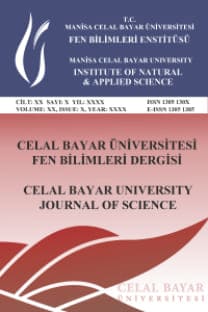Effects of Galium aparine Extract on the Angiogenic Cytokines and ERK1/2 proteins in Human Breast Cancer Cells
Tumor
angiogenesis is a multiple step process regulated by a range of pro- and
anti-angiogenic factors, cytokines and several signaling cascades, including
the ERK1/2 MAP kinase pathway. Galium aparine (GA) is a perennial plant of the
family Rubiaceae, growing widespread in Anatolia. It has been shown that GA
methanol (MeOH) extract has anti-proliferative and apoptotic effects on human
breast cancer cells. To investigate the underlying mechanisms that might
account for the anti-proliferative effect of GA extract, changes in angiogenic
cytokines and ERK1/2 proteins were investigated in human MCF-7 and MDA-MB-231
breast cancer cells. Viability of breast cancer cells after treatment of GA
were determined by Cell Proliferation Kit II. Changes in angiogenic cytokines
in breast cancer cells was done by a Human Angiogenesis Antibody Array. Protein
levels of phospho ERK1 and 2 were evaluated by western blot analysis. GA
induced cytotoxicity and apoptosis in a time- and concentration-dependent
manner in both cancer cells. Dipeptidyl peptidase-4 (DPPIV), insulin-like
growth factor-binding protein 1 (IBP-1) and transforming growth factor beta 1
(TGF-β1) levels were significantly decreased; however, secretion of serpin E1
was significantly increased by GA extract in MCF-7 cells. In MDA-MB-231 cells,
the levels of amphiregulin (AR), interleukin 8 (IL-8), insulin-like growth
factor-binding protein 3 (IBP-3), metalloproteinase-8 (MMP-8), heparin-binding
EGF-like growth factor (HB-EGF) and platelet-derived growth factor (PDGF) were
decreased by GA extract treatment. The secretion of pro-angiogenic cytokines
such as neuregulin-1 (NRG1-β1), vascular endothelial growth factor (VEGF) and
tissue factor (TF) were significantly decreased by GA treatment in both breast
cancer cells. There was also a significant decrease in protein levels of both
ERK1 and ERK2 in MCF-7 and MDA-MB-231 breast cancer cells by GA treatment.
These data suggest that GA might be a promising candidate for anti-tumor and
anti-angiogenic treatment of breast cancer.
Keywords:
Angiogenic cytokines, breast cancer cells, ERK1, ERK2 Galium aparine,
___
- Kirsch, M.; Schackert, G.; Black, P.M. Metastasis and angiogenesis. Cancer. Treat. Res. 2004; 117, 285-304.
- ISSN: 1305-130X
- Başlangıç: 2005
- Yayıncı: Manisa Celal Bayar Üniversitesi Fen Bilimleri Enstitüsü
Sayıdaki Diğer Makaleler
Rıza Atav, Osman Namırtı, Arzu Yavaş, Fatma Göktepe
Duygu Ersen, Müge Gemili, Hayati Sarı, Yahya Nural
Anti-microbial and Anti-oxidant Activity of Watermelon (Citrullus lanatus) Fruit and Watermelon Seed
Özlem GÜRSOY KOL, Perihan AKBAŞ, Abdurrahman GÜRBÜZ, Sevda MANAP
Pirinç Üretiminde HACCP Sisteminin Uygulaması
Murat GÖKÇEK, Sibel ÖZÇAKMAK, Osman GÜL
Dendrimer Teknolojisi Kullanılarak Aromaterapi Özelliğine Sahip Fonksiyonel Yünlü Kumaş Eldesi
Arzu YAVAŞ, Fatma GÖKTEPE, Rıza ATAV, Osman NAMIRTI
Sibel ÖZÇAKMAK, Murat GÖKÇEK, Osman GÜL
Two New Types of Irresolute Functions via -open Sets
Helices on a surface in Euclidean 3‐ space
Ufuk ÖZTÜRK, Hasan Hilmi HACISALİHOĞLU
